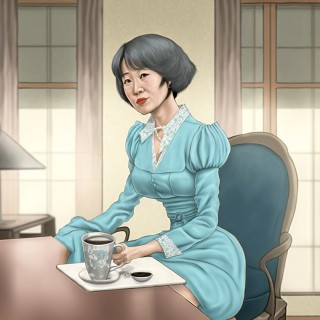

In Chapter 31 of Murakami's Kafka on the Shore, In the afternoon, Kafka brings coffee to Miss Saeki's office. He observes her, searching for any indication that she remembers the previous night, but finds none. During their conversation, Miss Saeki expresses the importance of birth and death locations. When Kafka inquires if she returned to Takamatsu to die, she admits uncertainty.
Kafka shares his theory: his father desired death because he loved Miss Saeki, and after she left, he prophesied Kafka's crimes involving her and his sister. Surprised, Miss Saeki wonders if she knows Kafka's father, but he reiterates that it's only a theory. Miss Saeki then asks if Kafka desires her, and he admits he does, both in theory and reality. She gently mentions their age gap. When he confesses his love, she asks him to leave. Before exiting, Kafka shares his feeling of approaching a distant truth. Miss Saeki admits she's waiting for death, having aimlessly wandered for years, and is now prepared for it. When Kafka asks to sleep with her, she firmly tells him to leave.
That evening, Kafka and Oshima discuss the challenges of love over dinner. Oshima agrees, stating that love seekers search for their missing piece, making love inherently melancholic.